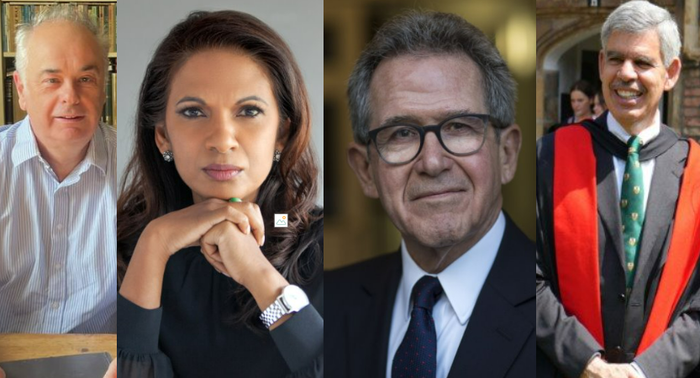‘Ethical candidate’ enters Chancellorship race, taking aim at ex-BP CEO’s fossil fuel ties
Tony Booth has pledged to put Cambridge at the forefront of a ‘reverse manhattan project’

Tony Booth, a former education professor and activist, has launched a bid for the Cambridge Chancellorship, claiming to be the only candidate standing on an “ethical” platform.
Booth, who was a Research Fellow at the Cambridge Centre for Commonwealth Education, announced his candidacy for the role of Chancellor, vowing to “call for the University to be an ethical force in the world and a champion of education and the future of its students”. He has pledged to put Cambridge at the forefront of a “reverse Manhattan project” by opposing the University’s ties to the arms and fossil fuels industries.
The Chancellorship is a largely ceremonial role, and does not hold any real executive power over the University. However, they do have the authority to call and chair Congregations of the Regent House, the University’s governing body, in addition to deciding on certain contested and unresolved matters on appeal.
Booth is the fifth candidate to enter the race, following legal expert Gina Miller, ex-British Petroleum CEO Lord Browne, President of Queens’ College Muhammed El-Erian, and astrophysics professor Wyn Evans.
When announcing his candidacy, Booth took aim at Lord Browne’s ties to extractive industries, claiming that his background caused concern among “students, faculty, and alumni who associate his leadership of BP with environmental degradation and corporate lobbying in favour of the fossil fuel industry”.
This allegation was rejected by Murray Edwards College President, Dorothy Byrne, who told Varsity: “The fact that he has been a loud and consistent advocate for the energy transition for more than 30 years, from his time at BP to his current role as an investor in climate technologies.”
“It is the very fact that he was one of the leading figures in the oil industry that makes his advocacy for action against the dangers of climate change so important and influential. His ability to bridge different points of view and see the bigger picture is just one of the reasons that he would be an outstanding Chancellor,” she continued.
Booth has gained the support of Cambridge for Palestine, the student group that set up an encampment on King’s Parade last year in opposition to the University’s ties to the arms industry. The group claimed that Booth is “the only candidate who will take a firm stance against the University’s unethical investments”.
The education professor previously supported the encampment, protesting against Suella Braverman’s visit to the site with GB News in May, where he held a sign reading: “Openly Jewish against visible genocide”.
The Chancellor is the University’s formal and ceremonial head. The current Chancellor is David Sainsbury, formerly known as Lord Sainsbury of Turville.
Sainsbury, a former chairman of Sainsbury’s supermarkets, was elected the Chancellor of the University by the Senate in October 2011, and was ceremonially installed as Chancellor in the Senate-House in March 2012. Between 1996 and 2006, when Sainsbury stood down as a Labour science minister, the businessman donated £16 million to the party. The billionaire was questioned by police when still a minister in 2006 during the cash for honours scandal, having admitted to failing to disclose a £2 million loan to the party.
The elected candidate will take part in public-facing activities, fundraising, and giving advice to senior members of the University. The deadline to register for voting is 2 May 2025, with elections due to take place in July.
 News / Caius students oppose exhibition dedicated to eugenics professor’s book5 June 2025
News / Caius students oppose exhibition dedicated to eugenics professor’s book5 June 2025 News / Trinity stalls on divestment review despite mounting pressure6 June 2025
News / Trinity stalls on divestment review despite mounting pressure6 June 2025 News / Cantabs reconsider US postgrad plans amid Trump upheaval7 June 2025
News / Cantabs reconsider US postgrad plans amid Trump upheaval7 June 2025 Features / Friends, rivals, coursemates: on competition and camaraderie in Cambridge3 June 2025
Features / Friends, rivals, coursemates: on competition and camaraderie in Cambridge3 June 2025 News / Trinity and John’s seek injunctions against pro-Palestine encampment5 June 2025
News / Trinity and John’s seek injunctions against pro-Palestine encampment5 June 2025





